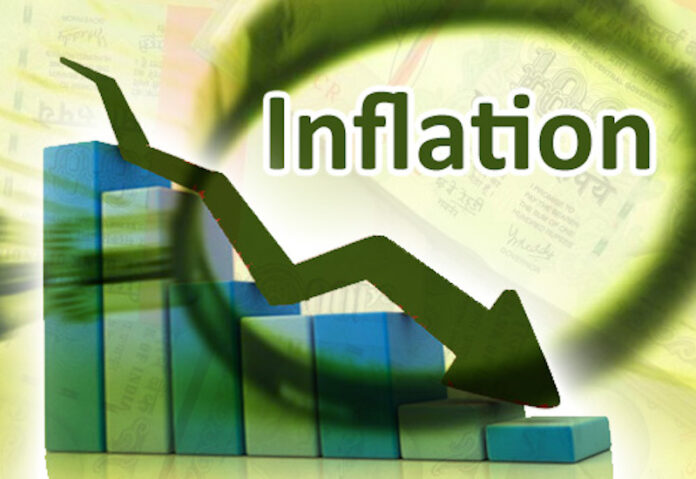The digital transformation process of the Nigerian business landscape, which is largely driven by private sector operators in the technology space, is faced with myriad of challenges such as inflation, FX and other market forces
It has been five months since President Bola Ahmed Tinubu announced the removal of fuel subsidies and four months since the Central Bank of Nigeria (CBN) announced its decision to float the Naira. Businesses in the country have been grappling with a tumultuous period defined an all time high 26 per cent inflation rate.
The United States, United Kingdom, and nations like Spain, Greece, France, and Portugal are also struggling with inflationary pressures, but have more robust infrastructure to sustain productivity and limit the impact of inflation than Nigeria does.
Zooming in on Nigeria, alarm bells have been ringing loudly. According to the National Bureau of Statistics (NBS), the inflation rate stood at 25.8 per cent in August 2023, an increase from 24.08 per cent recorded in July 2023. The floating of the Naira has also seen the Nigeria Naira get devalued with exchange rate against the dollar rise officially to N746/$1 and unofficially to N990/$1, up from the prevailing N461/$1 rate a few months ago. Adding to the major impact from the foreign exchange is the increase in energy costs including prices of petrol, diesel and a proposed increase in electricity tariffs. Diesel generators have long been the primary source of backup power for businesses in Nigeria, with the price per liter fluctuating between N850 and N950. Meanwhile, petrol which is primarily used for vehicles and for homes as an alternative source of fuelling generators now hovers between N568 and N650, an increment of over 200 per cent when compared to Q1 2023, stemming from the subsidy removal by the new government. Also, efforts are in progress to increase electricity tariffs for households and businesses which will be felt across the formal economy, as businesses grapple with the increased cost of operations.
With energy being a critical part of operations for most companies either in telecommunications, media, banking, manufacturing and tech, the impact on bottom line is huge when the cost of diesel, petrol and power subscriptions are factored into monthly and annual expenditures. More unsettling is the fact that inflation, as far as Nigeria is concerned, has continued to grow almost monthly.
Inflation
For businesses in Nigeria, grappling with the triple threats of inflation, currency devaluation, high diesel and petrol costs as well as the impending electricity tariff adjustments, achieving profit margins has become a formidable challenge and major businesses have already reported huge losses at the end of Q2 2023.
Nigeria’s burgeoning digital economy is feeling the effects of these cost pressures. As one of Africa’s largest Information and Communications Technology (ICT) markets with a substantial number of telecom subscribers and internet users, the impact is being keenly felt as telecoms operators, data center providers, and companies with their ICT infrastructure grapple with these high costs.
At a time when digital transformation is hailed as essential for economic productivity and the economy remains plagued with low growth, the ICT sector is being squeezed by the rising costs it is struggling to pass on to both businesses and consumers. Unlike traditional brick-and-mortar establishments that can cut down on service hours, networks and data centers must operate 24 x 7, around the clock, regardless of whether they serve a handful or millions of customers. This round-the-clock operation places immense cost pressures on these companies even as they face slow growth with a high-inflationary economy.
Reacting to the situation and its effect on businesses, the Managing Director, MainOne an Equinix Company, Funke Opeke, said: “In these challenging times marked by inflation, currency devaluation, rising energy costs, and skill shortages, businesses in Nigeria are facing an uphill battle in managing costs. To provide the critical digital services their customers require; businesses are compelled to outsource non-essential services like data centre services where they can enjoy the economies of scale and expertise that we offer, with more moderate cost escalation.”
Tough Decisions Ahead
Tough decisions to respond to the current challenges lie ahead for data service providers, manufacturers, Fast Moving Consumer Goods (FMCGs), and other businesses that increasingly rely on digital infrastructure to operate. In a market already faced with significant skills deficits further eroded with the ‘Japa’ syndrome, outsourcing of these services is becoming a more attractive alternative to the high overhead of running infrastructure in-house. Despite the fact that prices for the service providers are going up just like everything else in the market, these services continue to deliver cost savings to customers due to economies of scale in their operations and efficiency.
As the year draws to a close and businesses chart their strategies for the coming year, they must make difficult decisions to navigate the turbulent waters that lie ahead. Balancing the need for profitability with the reality of soaring costs will however remain a formidable challenge.





















